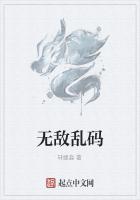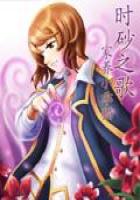“If he has a conscience he will suffer for his mistake. That will be his punishment—as well as the prison.”
“But the real geniuses,” asked Razumihin frowning, “those who have the right to murder? Oughtn’t they to suffer at all even for the blood they’ve shed?”
“Why the word ought? It’s not a matter of permission or prohibition. He will suffer if he is sorry for his victim. Pain and suffering are always inevitable for a large intelligence and a deep heart. The really great men must, I think, have great sadness on earth,” he added dreamily, not in the tone of the conversation.
He raised his eyes, looked earnestly at them all, smiled, and took his cap. He was too quiet by comparison with his manner at his entrance, and he felt this. Everyone got up.
“Well, you may abuse me, be angry with me if you like,” Porfiry Petrovitch began again, “but I can’t resist. Allow me one little question (I know I am troubling you). There is just one little notion I want to express, simply that I may not forget it.”
“Very good, tell me your little notion,” Raskolnikov stood waiting, pale and grave before him.
“Well, you see … I really don’t know how to express it properly. … It’s a playful, psychological idea. … When you were writing your article, surely you couldn’t have helped, he-he! fancying yourself … just a little, an ‘extraordinary’ man, uttering a new word in your sense. … That’s so, isn’t it?”
“Quite possibly,” Raskolnikov answered contemptuously.
Razumihin made a movement.
“And, if so, could you bring yourself in case of worldly difficulties and hardship or for some service to humanity—to overstep obstacles? … For instance, to rob and murder?”
And again he winked with his left eye, and laughed noiselessly just as before.
“If I did I certainly should not tell you,” Raskolnikov answered with defiant and haughty contempt.
“No, I was only interested on account of your article, from a literary point of view …”
“Foo! how obvious and insolent that is!” Raskolnikov thought with repulsion.
“Allow me to observe,” he answered dryly, “that I don’t consider myself a Mahomet or a Napoleon, nor any personage of that kind, and not being one of them I cannot tell you how I should act.”
“Oh, come, don’t we all think ourselves Napoleons now in Russia?” Porfiry Petrovitch said with alarming familiarity.
Something peculiar betrayed itself in the very intonation of his voice.
“Perhaps it was one of these future Napoleons who did for Alyona Ivanovna last week?” Zametov blurted out from the corner.
Raskolnikov did not speak, but looked firmly and intently at Porfiry. Razumihin was scowling gloomily. He seemed before this to be noticing something. He looked angrily around. There was a minute of gloomy silence. Raskolnikov turned to go.
“Are you going already?” Porfiry said amiably, holding out his hand with excessive politeness. “Very, very glad of your acquaintance. As for your request, have no uneasiness, write just as I told you, or, better still, come to me there yourself in a day or two … to-morrow, indeed. I shall be there at eleven o’clock for certain. We’ll arrange it all; we’ll have a talk. As one of the last to be there, you might perhaps be able to tell us something,” he added with a most good-natured expression.
“You want to cross-examine me officially in due form?” Raskolnikov asked sharply.
“Oh, why? That’s not necessary for the present. You misunderstand me. I lose no opportunity, you see, and … I’ve talked with all who had pledges. … I obtained evidence from some of them, and you are the last. … Yes, by the way,” he cried, seemingly suddenly delighted, “I just remember, what was I thinking of?” he turned to Razumihin, “you were talking my ears off about that Nikolay … of course, I know, I know very well,” he turned to Raskolnikov, “that the fellow is innocent, but what is one to do? We had to trouble Dmitri too. … This is the point, this is all: when you went up the stairs it was past seven, wasn’t it?”
“Yes,” answered Raskolnikov, with an unpleasant sensation at the very moment he spoke that he need not have said it.
“Then when you went upstairs between seven and eight, didn’t you see in a flat that stood open on a second storey, do you remember? two workmen or at least one of them? They were painting there, didn’t you notice them? It’s very, very important for them.”
“Painters? No, I didn’t see them,” Raskolnikov answered slowly, as though ransacking his memory, while at the same instant he was racking every nerve, almost swooning with anxiety to conjecture as quickly as possible where the trap lay and not to overlook anything. “No, I didn’t see them, and I don’t think I noticed a flat like that open. … But on the fourth storey” (he had mastered the trap now and was triumphant) “I remember now that someone was moving out of the flat opposite Alyona Ivanovna’s. … I remember … I remember it clearly. Some porters were carrying out a sofa and they squeezed me against the wall. But painters … no, I don’t remember that there were any painters, and I don’t think that there was a flat open anywhere, no, there wasn’t.”
“What do you mean?” Razumihin shouted suddenly, as though he had reflected and realised. “Why, it was on the day of the murder the painters were at work, and he was there three days before? What are you asking?”
“Foo! I have muddled it!” Porfiry slapped himself on the forehead. “Deuce take it! This business is turning my brain!” he addressed Raskolnikov somewhat apologetically. “It would be such a great thing for us to find out whether anyone had seen them between seven and eight at the flat, so I fancied you could perhaps have told us something. … I quite muddled it.”
“Then you should be more careful,” Razumihin observed grimly.
The last words were uttered in the passage. Porfiry Petrovitch saw them to the door with excessive politeness.
They went out into the street gloomy and sullen, and for some steps they did not say a word. Raskolnikov drew a deep breath.















